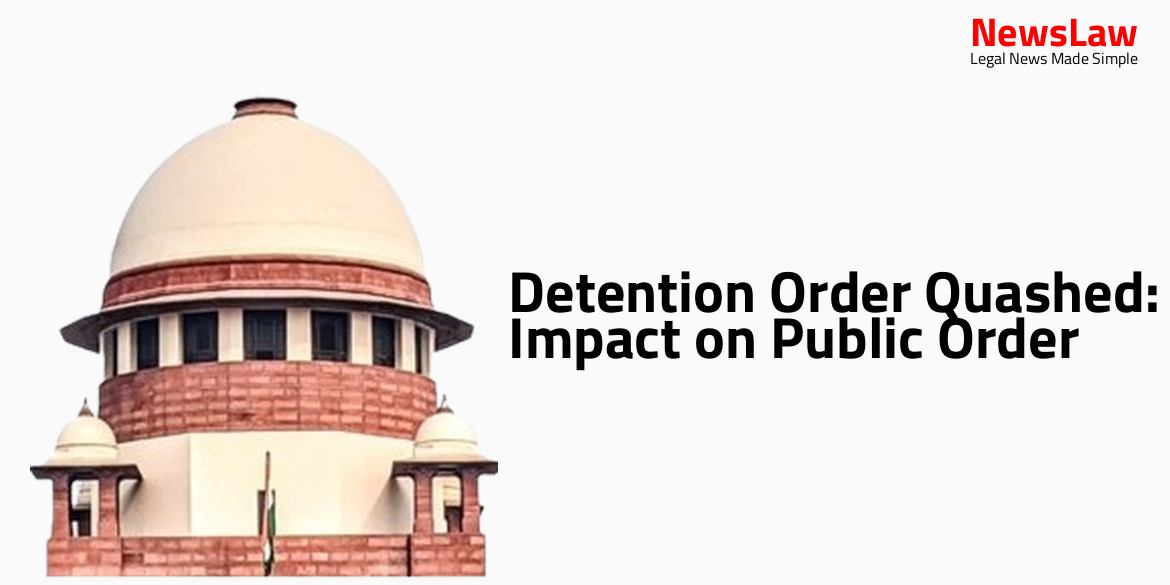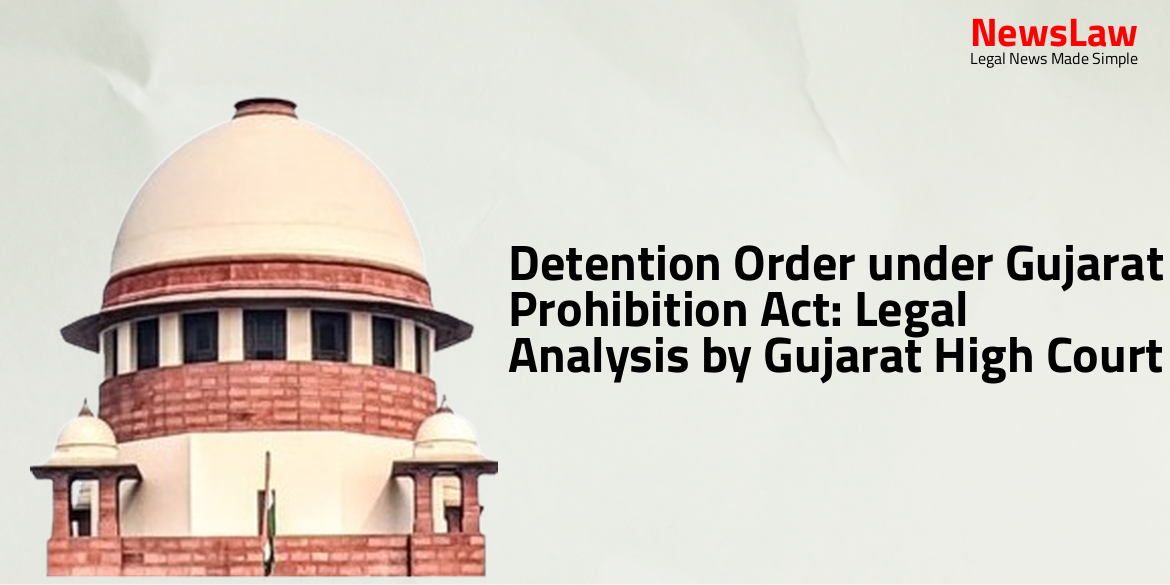In a recent ruling by the Gujarat High Court, a detention order issued against a individual allegedly involved in theft offenses has been quashed. The Court found that the activities of the individual did not pose a threat to public order. Stay tuned to learn more about the implications of this judgement on preventive detention laws and the distinction between law and public order.
Issue
- The issue at hand is whether the fair copy of the judgment needs to be presented to their Lordships for review.
- Another aspect of the issue is whether this case raises a significant question of law related to the interpretation of the Constitution of India or any of its orders.
Arguments
- Petitioner detained for alleged involvement in theft offenses registered with Sola Police Station and Sabarmati Police Station.
- Petitioner granted regular bail for both offenses by competent Court.
- Advocate argues that petitioner’s activities may disturb law and order but not breach ‘public order’.
- The detaining authority’s subjective satisfaction was found to be vitiated.
- The detaining authority could have opted for cancelling the bail instead of passing the detention order.
- The alleged illegal activities of the petitioner were considered to potentially disturb public order.
- Both offences were committed in broad daylight in a busy public place.
- The petitioner was released on bail for the first offence on 03.11.2023 and for the second offence on 04.11.2023.
Analysis
- The detaining authority’s grounds of detention were considered by the Court.
- The Court found that the alleged anti-social activities of the detenue did not adversely affect public order.
- Merely having two theft cases against the detenue was not sufficient to establish a threat to public order.
- There was no indication that subjective satisfaction was reached by the detaining authority before the detention order.
- The detenue was released from jail on 04.11.2023, and the detention order was passed on 07.11.2023.
- The expression ‘public order’ does not encompass every kind of order infraction, but only certain categories.
- Cases of quarrel, fighting, and assault between individuals are not considered public disorder.
- Culprits in such cases are dealt with under ordinary criminal law and cannot be detained under preventive detention laws.
- Subjective satisfaction for detention would be invalidated, as per the Supreme Court’s decision in Shaik Nazeen v. State of Telangana and Ors.
- The State has other remedies such as canceling bail or moving appeals to higher courts for individuals deemed a menace to society.
- The preventive detention law is not the appropriate remedy for cases that do not directly impact public order.
- Simply registering FIRs does not necessarily indicate a breach of ‘public order’.
- To affect public order, an infraction must impact the community or public at large.
- The distinction between ‘law and order’ and ‘public order’ is discussed in Pushker Mukherjee v. State of West Bengal [AIR 1970 SC 852].
- Serious and aggravated forms of disorder affecting the community fall under ‘public order’, while minor breaches of peace with local significance primarily harm specific individuals.
- Not every act of assault or injury leads to public disorder, and not all disorder qualifies for action under the Preventive Detention Act.
- A disturbance that affects public order is what justifies action under the Act.
- Cancellation of bail was available as a lesser drastic remedy but was not resorted to before passing the detention order
- The authority straightaway passed the detention order without cancelling bail
- This failure to consider the alternative remedy of cancelling bail renders the detention order invalid
Decision
- The petition has been allowed and the order of detention dated 07.11.2023 has been quashed and set aside.
- The detenue is ordered to be set at liberty forthwith unless required in connection with any other case.
- The rule has been made absolute and direct service is permitted.
Case Title: MAHESHJI @LATU KALAJI THAKOR THRO RATANBEN MAHESHJI THAKOR THROUGH HIS WIFE RATANBEN MAHESHJI THAKO Vs. COMMISSIONER OF POLICE
Case Number: R/SCA/20569/2023



